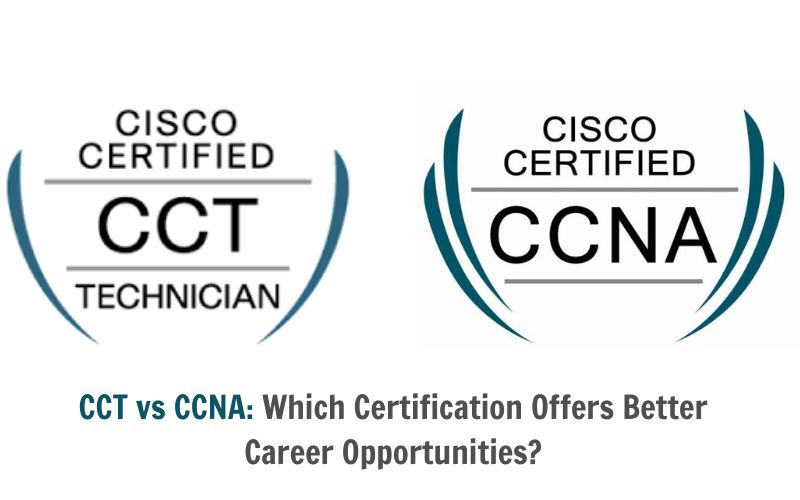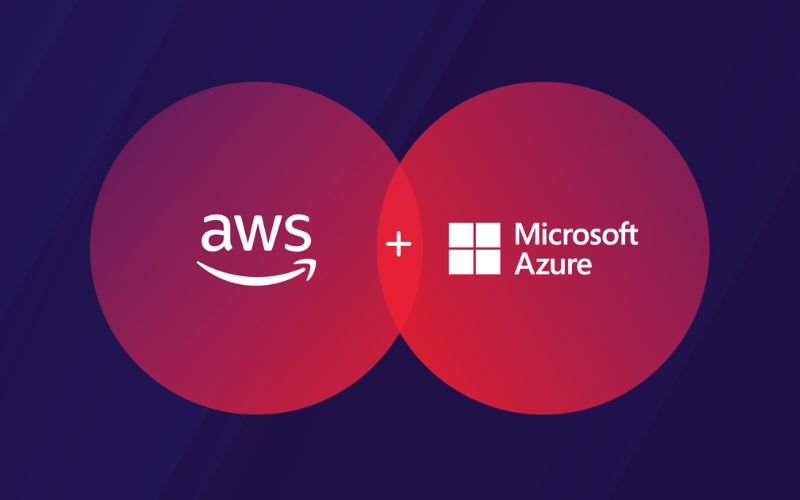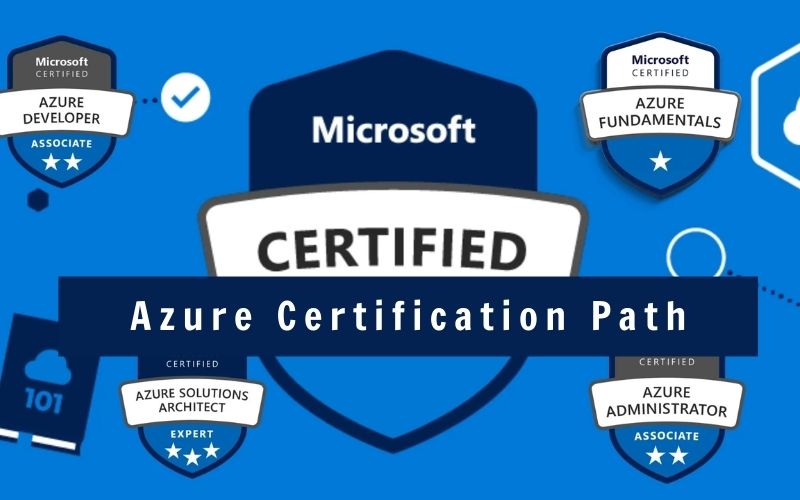Do you want to increase your earning potential in the IT industry? See our guide to the highest-paying CompTIA certifications for more information. IT Exam will go over the IT certifications that pay well, from CompTIA Security+ to CompTIA Advanced Security Practitioner (CASP+). Learn about the skills and expertise required for each certification, as well as the average CompTIA pay range for related employment opportunities. Don’t pass up the chance to boost your career by obtaining the highest-paying CompTIA certification.
Overview Of CompTIA Certifications
Even in the darkest of economic circumstances, technologists are recognized for making a solid living. According to Certification Magazine’s Salary Survey 75, earnings for IT professionals in the United States increased by 3.3% between 2021 and 2022. Despite the fact that the status of the US economy was leading many firms to slash budgets, the average income for a technologist at the time was $107,880. Many in-demand IT professionals demonstrated their ability to become necessary during times of global inflation by earning the highest-paying IT certifications on the market.
CompTIA’s vendor-neutral certification program is widely recognized in the IT sector. CompTIA has granted almost two million certifications since the development of the A+ certificate in 1993.
CompTIA Infrastructure Career Pathway was established in early 2018. While the CompTIA certification portfolio remains the same, this new career pathway program more closely aligns CompTIA certifications to the real-world skills that IT professionals need to ensure success when managing and supporting IT infrastructures.
CompTIA certifications are classified according to their skill set. CompTIA certificates are currently divided into four categories: Core, Infrastructure, Cybersecurity, and Additional Professional certifications.
- Core Certifications: Designed to build core foundational skills, CompTIA offers four Core certifications: IT Fundamentals+ (a pre-career certification focused on IT foundation framework), CompTIA A+ (focused on user support and device connectivity), CompTIA Network+ (targeting core system connections with endpoint devices), and CompTIA Security+ (focused on entry-level cybersecurity skills).
- Infrastructure Certifications: Designed to complement the Network+ credential, you’ll find three Infrastructure certifications: CompTIA Server+ (focused on issues related to server support and administration), CompTIA Cloud+ (covering hybrid cloud, virtual system administration and deploying network storage resources), and CompTIA Linux+ (focused on Linux operating system administration and management).
- Cybersecurity Certifications: CompTIA offers three cybersecurity credentials: CompTIA CySA+ (CySA stands for Cyber Security Analyst, and targets IT security behavioral analysts), CASP+ (CompTIA Advanced Security Practitioner; focuses on professionals who design and implement security solutions), and the CompTIA PenTest+ (Penetration testing, targets professionals who conduct penetration and vulnerability testing).
- Additional Professional Certifications: This category includes several credentials which don’t readily fit into any of the foregoing CompTIA career paths, including CompTIA Project+, CompTIA CTT+, and CompTIA Cloud Essentials.
Benefits Of CompTIA Certifications For IT Professionals

Solid foundation
CompTIA certifications help you build a firm foundation of important information and abilities that will allow you to advance in your career. Obtaining a CompTIA certification will allow you to master new technologies. You will gain new material by preparing for any of the CompTIA examinations. This material will help you increase your knowledge. There are several courses available in the market to prepare you for the certification test. You will obtain an awareness of how technology works to provide people with services, as well as experience in utilizing it. Such knowledge and talents allow you to excel at your job.
Vendor-Neutral
CompTIA certification is vendor-neutral. What you can accomplish with CompTIA certification is limitless. Because CompTIA does not focus on vendor-specific gear and software, you may focus on expanding your technical expertise. CompTIA familiarizes you with the technical jargon that you will need on your chosen professional path. In any vendor environment, CompTIA exposes openings to high-demand disciplines like computer networking and cybersecurity. As a newbie in IT, a CompTIA vendor-neutral certification is a smart option.
Remote Work
Remote work is a working style that encourages people to operate outside of a traditional office environment. It is founded on the premise that work does not have to be conducted in a certain area to be successful. CompTIA certification enables you to work from a remotely allocated desk rather than traveling to an office every day, allowing you to perform activities and fulfill your objectives wherever you want. You will be able to schedule your days in such a way that both your work and personal life may be fulfilled to the fullest while coexisting happily.
Career Options
Job opportunities in the IT business are quite competitive. Employers need employees with suitable experience and capabilities. Choosing one applicant from a field of qualified individuals is challenging. This is where the CompTIA certification comes in helpful. Having an IT certification will set you apart from other applicants who do not have certification. You’d have a good chance of getting a job with the company. Not only that but getting a certification shows your devotion and might help you get a better job.

Salary
Every employee wants good pay for their job, and IT certification is an excellent approach to earn better compensation from the firm. Obtaining a CompTIA certification can boost the legitimacy of your knowledge and abilities while also raising your compensation. CompTIA-certified employees are paid more than non-certified employees. Even if a certified and non-certified person performs the same work, the certified employee will earn more.
Read more >> Top 5 Job Roles That Offer Highest Sec+ Salary
Digital Badge
Vendors will provide you with a Digital Badge if you pass your IT certification exam. Your virtual identity card is your digital badge. To illustrate your knowledge in that sector, you may post your digital badge on numerous social networking platforms. It improves your reputation in the IT business, helping you to grow in your IT career. IT workers can display their digital badge provided their IT qualification is still valid, according to suppliers. As a consequence, the Digital Badge indicates your current involvement and captures the attention of your company and clients.
Networking
Networking is a key aspect of advancing your profession. There are communities with a high concentration of CompTIA-certified professionals. The reciprocal networking of CompTIA certification holders creates these groups. You may learn from recognized specialists in these communities. You may communicate with professionals to have productive talks about a variety of issues. You may ask questions about any problem and discover a solution. Not only may you ask questions, but you can also provide assistance to others and build a positive connection with these certification holders.
Self Satisfaction
Holding an IT certification gives you a sense of success. Passing the CompTIA certification is a big accomplishment since studying for the certification requires your undivided attention and excitement. This will increase your self-esteem and inspire you to strive harder. You’ll be delighted with your achievements. You’ll be able to perform significantly better and have a good track record of problem-solving. Earning a CompTIA certification will give you the confidence you need to build a successful career.
Job Retention
In a competitive economic situation, businesses are always looking for methods to minimize expenses. Earning a certification demonstrates your dedication to expanding your skill set and knowledge, which benefits both you and your business. The bottom line is that you must make an investment in yourself. A CompTIA certification will help you keep your job.
Top 5 Highest Paying CompTIA Certifications

Let’s explore the highest-paying CompTIA certifications in this section.
CompTIA Advanced Security Practitioner (CASP+)
CASP+ is an advanced-level certification that validates the skills and knowledge of IT professionals in enterprise security architecture, research and collaboration, and integration of enterprise security. The certification is designed for professionals with at least 5 years of experience in IT administration and at least 10 years of experience in IT security.
According to PayScale, the average salary for a professional with a CASP+ certification is $118,000 per year.
CompTIA Security+
Security+ is an entry-level certification that validates the skills and knowledge of IT professionals in network security, compliance, and operational security. The certification is designed for professionals with at least 2 years of experience in IT administration.
According to PayScale, the average salary for a professional with a Security+ certification is $75,000 per year.
CompTIA Network+
Network+ is an entry-level certification that validates the skills and knowledge of IT professionals in network technologies, installation and configuration, media and topologies, management, and security. The certification is designed for professionals with at least 9 months of experience in network support or administration.
According to PayScale, the average salary for a professional with a Network+ certification is $67,000 per year.
CompTIA Linux+
Linux+ is a mid-level certification that validates the skills and knowledge of IT professionals in Linux operating systems, command lines, security, and troubleshooting. The certification is designed for professionals with at least 12 months of experience in Linux administration.
According to PayScale, the average salary for a professional with a Linux+ certification is $72,000 per year.
CompTIA Cloud+
Cloud+ is an intermediate-level certification that validates the skills and knowledge of IT professionals in cloud computing, including virtualization, infrastructure, security, and resource management. The certification is designed for professionals with at least 2-3 years of experience in IT networking, storage, or data center administration.
Other CompTIA Certifications
Here is the list of highest-paying IT Certifications in the United States, according to CompTIA:
- ISACA Certified in Risk and Information Systems Control (CRISC): $156,390
- CCNP Security: $153,630
- ISACA Certified Information Security Manager (CISM): $148,680
- PMI Project Management Professional (PMP): $147,070
- Okta Certified Administrator: $145,800
- ISACA Certified Information Systems Auditor (CISA): $145,240
- ISACA CDPSE: $144,910
- GIAC Security Essential (GSEC): $141,020
- Cisco Certified Network Professional (CCNP): $121,082
- Amazon Web Services Certified Security – Specialty: $139,760
- EC-Council Certified Ethical Hacker (CEH): $138,650
- Amazon Web Services Certified Solutions Architect – Associate: $138,040
- (ISC)2 Certified Cloud Security Professional (CCSP): $137,100
- ISACA Certified in the Governance of Enterprise IT (CGEIT): $136,510
- Microsoft Certified: Azure Security Engineer Associate: $133,410
- GIAC Certified Incident Handler: $134,110
- Microsoft Certified: Azure Solutions Architect Expert: $133,410
Skills And Knowledge Required For Each Certification

Here are the skills and knowledge required for each CompTIA certification:
CompTIA IT Fundamentals (ITF+)
The CompTIA IT Fundamentals (ITF+) certification covers basic IT concepts and requires individuals to have a foundational understanding of:
- IT concepts and terminology
- Computer hardware components and peripheral devices
- Computer software and operating systems
- Network connectivity and protocols
- Basic security concepts and best practices
CompTIA A+
The CompTIA A+ certification covers a broad range of IT topics and requires individuals to have a basic understanding of:
- Computer hardware components and peripheral devices
- Computer software and operating systems
- Networking technologies and concepts
- Mobile devices and operating systems
- Cloud computing concepts
- Troubleshooting techniques and best practices
CompTIA Network+
The CompTIA Network+ certification covers networking topics and requires individuals to have a basic understanding of:
- Network architecture, topologies, and protocols
- Network operations and services
- Network security concepts and best practices
- Network troubleshooting and problem-solving techniques
- Wireless networking concepts and technologies
CompTIA Security+
The CompTIA Security+ certification covers security topics and requires individuals to have a basic understanding of:
- Network security concepts and best practices
- Compliance and operational security
- Threats and vulnerabilities
- Application, data, and host security
- Access control and identity management
- Cryptography concepts and techniques
Each CompTIA certification requires a different level of knowledge and skills, with the more advanced certifications building on the foundational knowledge covered in the entry-level certifications. It is important for individuals to assess their experience and knowledge level before selecting a certification to ensure they choose the right one for their career goals.
4 Tips To Choose The Right CompTIA Certification For Your Career
Choosing the best CompTIA certification for your career might be difficult because each certification is tailored to certain work positions and career pathways. Here are some pointers to consider while selecting the best CompTIA certification for your career:
- Determine your career objectives: This will assist you in determining which certification is most appropriate for your professional path.
- Examine your experience and knowledge: If you are new to IT, you should start with an entry-level certification like CompTIA IT Fundamentals (ITF+) or CompTIA A+. If you have more experience, try an intermediate or advanced certification like the CompTIA Network+ or CompTIA Security+.
- Research the labor market: Investigating the job market will assist you in determining which CompTIA certifications are in great demand and which job responsibilities necessitate specialized certification. This might also assist you in identifying prospective career paths and income ranges.
- Consider the cost and time commitment: The cost and time commitment for each CompTIA certification vary. Check the price of the exam, study materials, and any training courses you may need to attend.

The CompTIA IT Career Pathway
If you decide to pursue an IT profession, this Cybersecurity Profession Pathway from CompTIA will assist you in achieving cybersecurity expertise from beginning to end. Earning cybersecurity certifications demonstrates to employers that you are the best candidate for the position and have the necessary abilities to secure the firm from cyberattacks and threats.
Entry-level Cybersecurity Certification
The CompTIA Security+ certification serves as the focal point. It lays the groundwork for any cybersecurity career and serves as a stepping stone to intermediate-level cybersecurity positions. It focuses on the hands-on practical skills utilized by junior IT auditors, systems administrators, network administrators, and security administrators with performance-based questions.
Intermediate-Level Cybersecurity Certifications
After CompTIA Security+, cybersecurity professionals can pursue intermediate-level certifications such as CompTIA Cybersecurity Analyst (CySA+) and CompTIA PenTest+.
CompTIA Cybersecurity Analyst (CySA+)
The CompTIA Cybersecurity Analyst certification tests your ability to use network behavioral analytics to enhance overall IT security. Packet sniffers, intrusion detection systems (IDS), and security information and event management (SIEM) systems are among the technologies covered by the certification.
As new threat intelligence methodologies develop, the relevance of the security analyst job function has grown, making these skills vital for most firms.
CompTIA PenTest+
CompTIA PenTest+ is concerned with the offensive side of security, such as penetration testing and vulnerability assessment, whereas CySA+ is concerned with the defensive side, such as incident detection and response. It entails initiating system attacks as well as discovering and managing vulnerabilities.
The CompTIA PenTest+ exam is designed for penetration testers and vulnerability assessment analysts who scan, locate, exploit, report, and manage network vulnerabilities.
Because Security+ evaluates an IT professional’s knowledge, skills, and abilities (KSAs) after two years of cybersecurity fieldwork, and CySA+ and PenTest+ evaluate three to four years of cybersecurity fieldwork, it makes sense to progress from CompTIA Security+ to CompTIA CySA+ and/or CompTIA PenTest+.
Read more >> CompTIA Security+ Validity: How Long Does This Last?
Advanced-Level Cybersecurity Certification
CompTIA Advanced Security Practitioner (CASP+)
IT professionals with 5 to 10 years of experience can acquire the CompTIA Advanced Security Practitioner certification to demonstrate their cybersecurity skills. CASP+ is the highest level of cybersecurity certification and includes performance-based questions.
It is aimed at professionals who want to get their hands dirty with corporate security, incident response, and architecture rather than simply administering cybersecurity policies and frameworks.
FAQs
What is the highest paying cyber security certification?
What’s harder Network+ or Security+?
What is the most difficult CompTIA exam?
Which is harder CCNA or Network+?
Final Words
In conclusion, gaining the highest paying CompTIA certification might be a terrific method to enhance your career and make more money in the IT business. Whether you want to work in network security, cloud computing, or IT administration, CompTIA has a certification to meet your needs. Remember to select the certification that best matches your talents and interests, and to invest in the appropriate study resources to assure exam success. With hard work and determination, you may join the ranks of IT professionals who have obtained the highest-paying CompTIA certification.
[Sassy_Social_Share]


